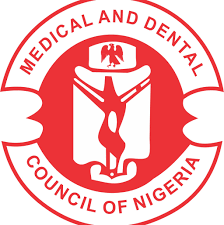From Tuesday 14th June to Thursday 16th June 2016, the University of Ibadan Centre for Child and Adolescent Mental Health (CCAMH) hosted the very first Child and Adolescent Mental Health (CAMH) conference i n Nigeria at the College of Medicine, University of I badan, University College Hospital I badan Campus, Nigeria. The conference was held in collaboration with the African Association for Child & Adolescent Mental Health (AACAMH), the Associati on for Child & Adolescent Psychiatry & Allied Professions in Nigeria (ACAPAN) and the Department of Child & Adolescent Psychiatry, University College Hospital (UCH), I badan.
In her welcome address, the Conference Convenor and Director of the John D. and Catherine T. MacArthur Foundation Funded Centre for Child and Adolescent Mental Health (CCAMH), Professor Olayi nka Omi gbodun, stressed that the conf erence themed "Child Mental Health for Nation Building" was convened to bring chi Id and adolescent mental health professionals together from across the Nation and the entire continent of Africa to draw much needed attention to the poor state of mental health of infants, children and adolescents and more i mportantly to seek solutions to the unfortunate situation. She pointed out that the leaders of Africa today were children yesterday and that depending on their childhood experiences, learning opportunities and role models, they were now ruling nations and we were experiencing the i mpact of their leadership. She reiterated that the overal I ai m of the conference was to explore and identify priorities for optimizing psychological functioning among youth as well as to strengthen cooperation between all stakeholders involved in youth mental health. She quoted from a Nigerian leader whose visi on and foresight captured the essence of child mental health for nation building as he wrote: "It is only when minds have been properly and rigorously cultivated and garnished, that they can be safely entrusted with public affairs with a certainty and assuredness that they will make the best of their unique opportunity and assignment." Obafemi Awolowo, 1967.
 The Provost of the College of Medicine, University of I badan, Professor Babatunde Salako, declared the 3-day conference open.
The Provost of the College of Medicine, University of I badan, Professor Babatunde Salako, declared the 3-day conference open. During the conference, a total of 10 plenary lectures, 12 workshops, 6 symposia and several free papers around the theme of child and adolescent mental health were delivered in parallel sessions. The distinguished plenary speakers and workshop fad I itators at this pioneer conference were Professor Naoufel Gaddour, President of the Association for Child and Adolescent Mental Health (AACAMH), from University of Monastir, Tunisia; Dr. Oluwayemi Ogun, President of the Association for Child and Adolescent Psychiatry and Allied Professions in Nigeria (ACAPAN), as well as Chief Consultant Psychiatrist, Federal Neuro Psychiatric Hospital, Yaba, Lagos; Dr. Cornelius Ani, Child Psychiatrist and Paediatrician, I mperial College London; Dr. Olayi nka Egbokhare, Department of Communication and Language Arts, University of I badan; Dr. Olapeju Si moyan, Associate Professor of Family Medicine and Epidemiology, The Commonwealth Medical College, Scranton, USA; Professor Afolabi Lesi, Paediatric Neurologist and leading researcher in Child Development, University of Lagos; Dr. Ezer Kang, Associate Professor of Clinical Psychology, Howard University, Washington DC, USA; and Mrs Noreen Huni, Chief Executive Officer, of a 13-country regional NGO Regional Psychosocial Support Initiative (REPSSI), with headquarters in South Africa, that provides psychosoci al care and support for children and youth affected by poverty.
Over the three-day period the participants attended plenary sessions, workshops, symposia, and free oral sessions. In li ne with the theme of the conference, a special leadership training session for youth was held during the conf erence which encouraged them to think about leadership and mentoring roles, communication skills for these roles, creative thi nki ng and thinking outsi de the box. A mental health literacy programme was also put in place to help them to better understand mental health and illness. Comments and resolutions from the youth participants who consisted of secondary school and university students included their perceptions of a good leader as the "sharp point of an arrow", a "caring, DOWNLOAD THE FULL COMMUNIQUE HERE
ABUJA: Training Schedule for Basic Life Support BLS, Pediatric Advanced Life Support (PALS), Advanced Cardiovascular Life Support ACLS, First Aid, CPR, AED
PORTHARCOURT: Training Schedule for Basic Life Support BLS, Pediatric Advanced Life Support (PALS), Advanced Cardiovascular Life Support ACLS, First Aid, CPR, AED
LAGOS: Training Schedule for Basic Life Support BLS, Pediatric Advanced Life Support (PALS), Advanced Cardiovascular Life Support ACLS, First Aid, CPR, AED




